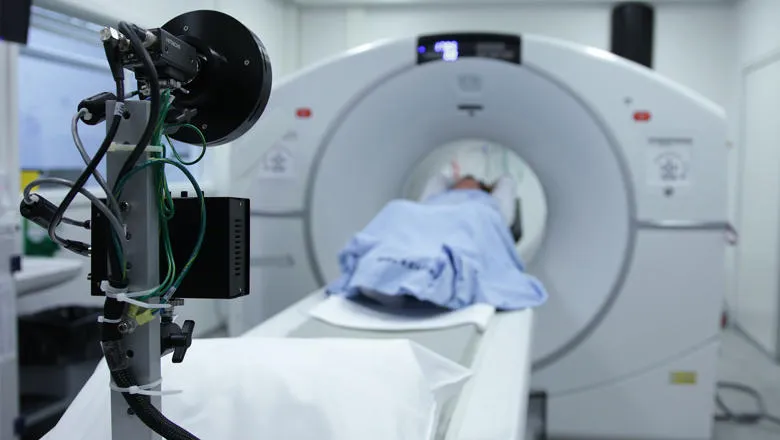14 May 2015
Using PET scans to monitor treatment
Exciting new clinical trial results show that some patients with Hodgkin's Lymphoma could be spared damaging radiotherapy and still be free from their disease three years later.

Exciting new clinical trial results show that some patients with Hodgkin's Lymphoma could be spared damaging radiotherapy and still be free from their disease three years later. The results of this trial, which was funded by Leukaemia and Lymphoma Research, Teenage Cancer Trust, and Lymphoma Research Trust, have recently been published in the New England Journal of Medicine. The study is practice changing and offers patients better choices regarding treatment.
The study was led by Professor John Radford at the Christie Hospital in Manchester and Dr Sally Barrington and Professor Michael O’Doherty at the PET Centre at St Thomas’ Hospital, London.
The trial, called RAPID, recruited 602 patients with early stage Hodgkin Lymphoma. After 3 cycles of standard chemotherapy, patients had a PET scan. Patients who had a PET result suggesting that there was still active tumour i.e. a ‘positive’ scan received a further cycle of chemotherapy and radiotherapy, which is the standard treatment for this disease.
The 420 patients whose PET scans suggested a good response to treatment i.e. a ‘negative’ scan, were divided into two groups. Half were given radiotherapy and half had no further treatment. The trial showed that patients with a negative PET scan had very good outcomes, both with and without radiotherapy and > 90% are likely to be cured of their disease. At 3 years 97% of patients who received radiotherapy and 91% who received no further treatment are free of disease.
This means that patients who received radiotherapy had fewer recurrences of their disease than patients who did not, however this benefit is achieved only if all patients with a ‘negative’ PET scan are treated with radiotherapy, most of whom are already cured.
Longer follow-up will be needed to find out whether not treating ALL patients with radiotherapy will result in better survival and fewer side-effects e.g. second cancers and cardiovascular disease, as is hoped.
From an imaging perspective, the RAPID study was one of the first to test the role of response-adapted therapy using PET in lymphoma.
Advances in PET imaging occurring in the RAPID trial
A research network was developed, led by Dr Sally Barrington and Professor Paul Marsden at King’s College London during the course of the RAPID trial which applied common methods for quality control and assurance across the UK. The network was later adopted for use in all cancer imaging trials, sponsored by the National Cancer Research Institute and is known as the NCRI Core Lab.
Dr Sally Barrington and Professor Michael O’Doherty at St Thomas' Hospital also developed the 5-point scale now commonly used for PET reporting (Deauville criteria) which was first used in clinical practice at Guy’s and St Thomas’ and in RAPID within a clinical trial for the first time.
This simple scoring system has high levels of agreement amongst PET readers and has been universally adopted for clinical practice in international guidelines.
The name 'Deauville criteria' was given to the 5-point scale after the first international meeting in PET and lymphoma held in Deauville in 2009 supported its widespread application.
